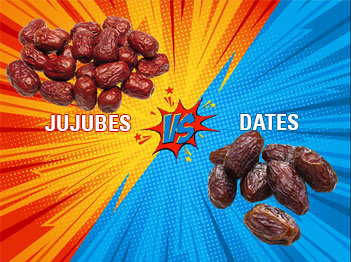
Keto, paleo, vegan, pescetarian, vegetarian, 80/20, and Standard American…there are more diets today than you can shake a fruit leather stick at, with some further than others along the ‘fruit loop’ spectrum. (We’re looking at you, blood type diet…) And just when we think we have a handle on what healthy, balanced eating means, another ‘doctor-endorsed miracle diet’ springs up, like a the nutritional version of whack-a-mole. So, in the face of this overwhelm and confusion, where one diet outright contradicts the next, it may be only logical to turn to some of the older civilizations to see what their nutritional regimens recommend. After all, some of the European nations have been nourishing themselves apparently rather successfully for quite some time. Take the Greeks with their Mediterranean diet venerating plump cured olives and fruity olive oils. Or the French with their ‘everything in moderation’ approach to red wine and dark chocolate. But when it comes to following the example of others, only rarely do we look to the Far East for nutrition guidelines. Until now. Let’s take a look at a new phenomenon popularized in the United Kingdom that elevates a humble fruit to the level of a superfood.
Let’s grab a handful of jujubes…
Native to China’s Xinjiang region, jujubes, also known as ‘red dates,’ are sweet, chewy, and loaded with nutritional goodies. With 20 times the vitamin C of an orange, the average jujube is bursting with antioxidants, manganese, 18 essential amino acids, iron, phosphorus, calcium, and that all-important fiber.(1) In addition, and perhaps in our over-stressed world the main reason for their meteoric rise in popularity, they are adaptogens – foods that promote our body’s natural resilience to stress. Across ‘The Pond’ in the United Kingdom, importer Abakus Foods is hailing the jujube as the next big thing to put the ‘fun’ in functional foods. As the sole importer from China, Abakus Foods notes that while packed with nutrients, jujubes are also higher in protein and still 50% lower in sugar than their closest competitor, the date.(2) So what else do these little red fruits do for us? Let’s look closer…
- Enjoy the benefits of a powerful energy booster
- Mega doses of vitamins A and C, along with potassium, naturally strengthens the immune system
- In addition to being a soothing color, the fruit offers natural anti-depressant and anti-anxiolytic properties
- The raw sweetness promotes appetite and aids digestion
- Abundant niacin supports pulmonary activity by keeping the blood pumping
- Fiercely inhibits cancerous cell growth
- Potent antioxidant qualities will also shield your liver
- Easily portable low-calorie snack
- Calcium- and phosphorus-rich berries strengthen your bones and teeth
- A fountain of youth? Natural antioxidants inhibit signs of aging.
And, as Abakus Foods notes: all of this is available without the inconvenience of ‘sticky fingers’!
But digits are not the only ‘sticking points’ in terms of bringing this superfood across The Pond and into grocery carts stateside. In fact, the challenges faced by jujubes here are more centered on sticky marketing and branding concepts than anything else. Why? Because the word itself is problematic. Typing ‘jujube’ into the text field of a well known search engine will bring you almost 6 million hits, only some of which relate to an edible fruit. Closest to the theme of food – and our ‘Jujube #2’ – is perhaps Jujube Restaurant based out of Chapel Hill, NC.(3) Opened in 2005 to bring the flavor profiles of Vietnam and China to East Coast diners, Jujube channels the vision that gained Chef Charlie Deal a place among the peer reviewed ‘Best Chefs of America’ in creating a modern Asian fusion experience.
Although we scanned the menu we can’t know for sure whether or not Jujube Restaurant makes use of Jujube cherry tomatoes in its dishes. Our ‘Jujube #3’, these diminutive nightshades with their distinctive uber-fruity flavor and firm texture can be grown from seeds supplied by Baker Creek Heirloom Seeds. Baker Creek, a unique elision of quaint and hillbilly, is based in the Ozarks of Missouri and features ‘an old-time mercantile, herbal apothecary, a natural bakery, garden museum and blacksmith shop, two music barns, a Western jail, a native rock oven, a windmill, our seed warehouses, and many breeds of historic poultry and livestock.’(4)
After a day of browsing the over 2000 varieties of heirloom seeds available at Bakersville, you would be forgiven for craving a period of rest and relaxation. So perhaps it would be the right moment to sink into Jujube patio seating – our ‘Jujube #4’ – a decidedly avantgard take on the outdoor armchair, featuring tubular metal backs and re-arrangeable configurations that put the owner firmly in the driving seat of design.(5)
But there’s more. Moving away from food, we also found Jujube Laminate Flooring by Pennsylvania Traditions, our ‘Jujube #5,’ available from a national home improvement chain most readily recognizable for its brazen orange-themed logo and comprehensive How-To guides. The aesthetic of the flooring, while stunning, is not subtle, with bold strokes of blanched pine and honeyed walnut colors jockeying for attention in each plank. Definitely not a material to use in areas where a restful, low-key finish is desired.
And finally, getting about as far from the food theme as we can reasonably go, there’s also the Jujube diaper bag. Coming in as our ‘Jujube #6,’ these are stylish, ubiquitous, and seemingly available in every design under the sun. And, if the Internet is anything to go by, these bags are the must-have accoutrement for any fan of disposable underwear – at whatever stage of life, we assume. From Hello Kitty to The Monarch (perhaps ahead of this weekend’s upcoming royal wedding?), Jujube bags certainly seem to have the diaper-conscious consumer covered.(6)
So with all of that in mind, any American counterpart of Abakus Foods is going to have its work cut out for it in terms of branding and marketing the jujube fruit here in the U.S. Yes, it’s functional, an adaptogen, an even healthier alternative to the time-tested, beloved date. But despite its myriad benefits – gluten-free, dairy-free, refined sugar- and sulfite-free, lower calories and higher fiber, and sticky-finger-free – it’s also waging an uphill battle for brand recognition against flooring, tomato seeds, culinary endeavors, home improvements, and diapers. And, at this time, as anyone who has ever had need of a stylish way of conveying intimate personal undergarments in public will attest, diaper bags are the first thing that comes to mind when considering the term ‘jujube.’
But don’t just take our word for it. The Internet concurs: 5,740,000 hits in 0.53 seconds just cannot be wrong…
We’d love to know what you think of the future for branding and marketing of the jujube fruit. Leave your comments here.
References:
- https://www.fooddive.com/news/chinese-jujubes-could-give-dates-some-competition/517427/
- https://www.abakusfoods.com/
- http://www.jujuberestaurant.com/
- https://www.rareseeds.com/get-to-know-baker-creek/our-village/
- https://design-milk.com/jujube-outdoor-seating-inspired-graphic-design/
- https://shop.ju-ju-be.com/backpacks/

Pingback: The Euphoric Alchemy of Botanical Beverages - Food Contact Surfaces